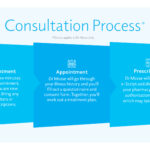In most cases, men tend to lead less healthy lifestyles than women.
Many Australian men experience poor health outcomes across a variety of measures, including rates of overweight and obesity, diabetes or high blood glucose levels, Sexually Transmissible Infections (STI) and mental health and wellbeing, according to the NSW Ministry of Health.
Making matters worse, men are less likely to seek medical help in comparison to women.
“The leading cause of death for males was coronary heart disease, accounting for 10,040 (12%) deaths, followed by dementia including Alzheimer’s disease (5,250; 6.2% of deaths”, according to the Australian Institute of Health and Welfare.
In addition, men face health issues unique to their gender, including erectile dysfunction, premature ejaculation, and prostate cancer.
How often should you have a health check?
Men younger than 40 should have a health check every two to three years; while men 40 and over should have a health check every one to two years.
We got you covered.
At Castle Hill Medical Centre, we understand the unique health challenges faced by men, and provide comprehensive healthcare solutions needed for men to lead a healthier and happier life.
1. Men’s health check
Even if you feel healthy, regular check-ups aim to help identify potential health issues early in people who don’t have symptoms of disease. Early intervention is critical for improving overall health outcomes.
General recommended men’s health screenings¹ include heart health, diabetes, hearing and eyesight, prostate cancer, bowel cancer, skin cancer, depression, and teeth.
2. Erectile Dysfunction
Learn about erectile dysfunction, a common condition affecting men.
It is estimated that erection problems affect about one in every five men over the age of 40. Erectile dysfunction can have a range of causes, both physical and psychological. It is usually a combination of both. Sometimes there is no clear cause.
Symptoms of erectile dysfunction include:
- Capable of getting an erection sometimes, but not every time you want to have sex.
- Capable of getting an erection, but not having it last long enough for sex.
- Failing to get an erection at any time.
Many men experience erection problems from time to time. However, if the problems persist, it is important to speak to your doctor.
3. Premature ejaculation
How much do you understand about premature ejaculation? Premature ejaculation is the most common sexual issue affecting men. It is more common in younger men, as ejaculation tends to take longer as men gets older, but premature ejaculation can happen at any age.
Some men may have physical problems tied in with premature ejaculation, such as impotence or high blood pressure. Some medicines can make it worse too.
Premature ejaculation is caused by a chemical imbalance in the brain that causes a lower threshold for ejaculation, or it could be a result of psychological factor such as performance anxiety.
You should speak to your doctor if you are experiencing delayed ejaculation because they can provide reassurance, determine the cause, and offer personalised management solution.
4. Prostate Cancer
Prostate cancer² is the most frequently diagnosed cancer in Australia; approximately one in six men will be diagnosed by the time they are 85.
“It is estimated that more than 24,200 males were diagnosed with prostate cancer in 2022. The average age of diagnosis is 69 years old”, according to Cancer Council.
It is therefore important to be aware of any unusual or ongoing changes in toilet habits and pain in specific areas. You can also reduce your risk of developing prostate cancer by embracing healthy diets and lifestyles.
Studies³ have shown that these selected eating habits help in the prevention of prostate cancer, and these include:
- Reducing fat intake
- Eating more fruits and vegetables
- Adding green tea and soy
- Avoiding charred meat
Remember, taking proactive steps towards better health reduces your risk of disease and helps you lead a more fulfilling life.
If you have any questions or concerns, speak to your doctor today.
Ref¹: https://www.healthdirect.gov.au/essential-screening-tests-for-men
Ref²: https://www.cancer.org.au/cancer-information/types-of-cancer/prostate-cancer







